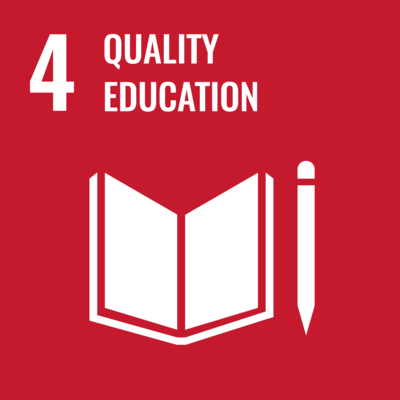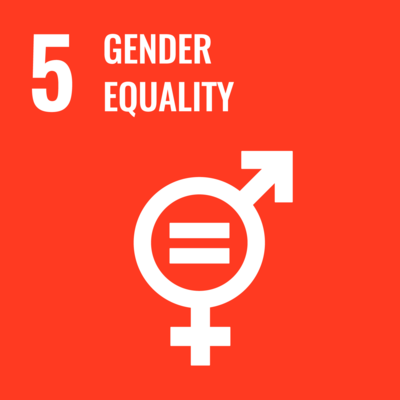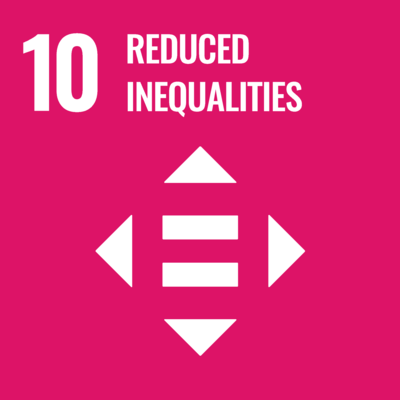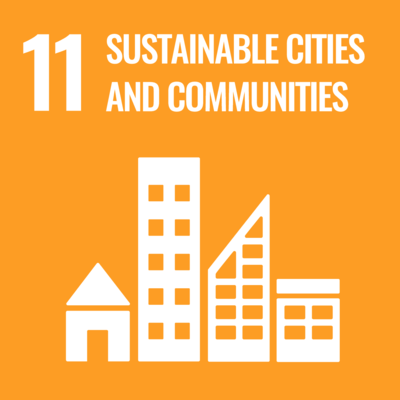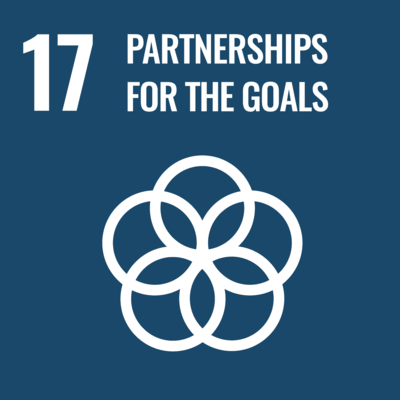SDG 4.3.5 Lifelong learning access policy
NCUE organizes various activities and courses with no restrictions based on race, religion, disability, immigration status, or gender. Additionally, to ensure equitable learning opportunities for students who are economically disadvantaged, indigenous, new immigrants, or of diverse genders, NCUE has implemented numerous regulations and policies to protect students' educational rights.
1. Gender Equality:
In 2000, NCUE established the Gender Equality Education Implementation Regulations and, in 2004, the Gender Equality Education Committee Establishment Measures. These initiatives are designed to create an educational environment free from gender discrimination. NCUE also provides support to students disadvantaged due to their gender or sexual orientation and safeguards the educational right of pregnant students by offering necessary assistance. Additionally, NCUE offers gender equality-related courses available to all students, fostering a gender-equitable learning environment through collaborative efforts of faculty and students.
NCUE Gender Equity Education Committee website:
https://genderweb.ncue.edu.tw/files/11-1016-83.php?Lang=zh-tw
Please refer to Attachment 4.3.5A—Regulations on Gender Equity Education for the University’s gender equality education policy and specifications.
2. Tuition and Fees Waivers:
To ensure students can pursue their studies smoothly and lessen their financial burden, NCUE applies tuition and fee waiver measures in accordance with the following regulations set by the Ministry of Education:
Tuition and Fees Waiver Measures for Low-Income and Lower-Middle-Income Students Attending Senior High Schools and Above.
Tuition Waiver Measures for Students with Disabilities and Children of Persons with Disabilities.
Tuition and Fees Waiver Measures for Indigenous Students Attending Junior Colleges and Above.
Tuition and Fees Waiver Measures for Children and Grandchildren from Families in Special Circumstances Attending Senior High Schools and Above.
The Act of Education Tuition Benefits for the Survivors of Military and Civil Servants.
Tuition Waiver Measures for Children of Active-Duty Military Personnel Attending Secondary Schools and Above.
Students who qualify as low-income, lower-middle-income, students with disabilities, children of persons with disabilities, indigenous, children or grandchildren from families in special circumstances, dependents of military personnel, civil servants, and educators, or children of active-duty military personnel can apply for partial or full tuition and fee waivers. This ensures equitable access to education, allowing students to study without financial concerns.
3. Indigenous Students:
(1) In 2017, NCUE established the Indigenous Student Resource Center to provide services for indigenous students in daily life, academics, cultural enrichment, and personal development. This center supports indigenous students in developing diverse knowledge and talents related to their ethnic heritage. Each academic year, NCUE allocates nearly 100 additional admissions specifically for indigenous students. Upon enrollment, NCUE provide tuition and fees waivers to lessen their financial burdens. NCUE also provides comprehensive learning support and counseling to lower dropout and withdrawal rates of indigenous students, ensuring equitable access to education. Furthermore, the Indigenous Student Resource Center offers indigenous culture-related courses each year, open to all NCUE students, to preserve and promote indigenous cultures. https://studentweb.ncue.edu.tw/p/412-1003-2282.php?Lang=zh-tw
(2) In March 2023, NCUE established the Regulations for Admissions to Indigenous-Only Program s and launched the Bachelor's Degree Program for Indigenous People in Seniors Health Promotion and Care Management. In its first year, the program successfully enrolled 28 indigenous students, and we plan to increase the enrollment by 50 students annually in the future. Through interdisciplinary courses and professional practice activities, we guide students in obtaining relevant certifications. We also provide dedicated activity spaces and distinguished faculty to help students deepen their understanding of indigenous cultures. Additionally, we ensure that students' learning rights are fully protected by collecting and acting on student feedback.
https://acadaff.ncue.edu.tw/var/file/2/1002/img/827/168864090.pdf
Aboriginal class: https://coe.ncue.edu.tw/p/412-1033-1648.php?Lang=zh-tw
4. Economically or Culturally Disadvantaged Students:
Each academic year, economically or culturally disadvantaged students account for approximately 10% of our total student population. In 2018, NCUE established the NCUE Soaring Eagle Project: Incentive Guidelines (https://drive.google.com/file/d/1aCNX2yA3TEaXrzBD3vgZMDuo7JCkLhko/view). These guidelines affirm our commitment to supporting economically disadvantaged students, ensuring that financial factors do not impact their learning.
We provide tuition and fee waivers, educational fund subsidies, and learning support for relatively disadvantaged groups, ensuring equitable access to education for students from various backgrounds. In addition to providing academic support, we have developed a holistic care system to support disadvantaged students throughout their academic journey, allowing students to complete their studies without financial worries.
These efforts aim to embody our core value of promoting equal educational opportunities to support upward social mobility. The outcomes are as follows:
(1) The number of economically disadvantaged students in NCUE (including low-income households, lower-middle-income households, students with disabilities and children of persons with disabilities, children and grandchildren from families in special circumstances, those eligible for subsidies under the University/College Financial Aid Program for Disadvantaged Students, indigenous students, and those whose families have suddenly encountered difficulties and been approved by the school) was 681 in 2018, 703 in 2019, 713 in 2020, 719 in 2021, 731 in 2022, and 749 in 2023, with an average of about 716 students per year.
(2) To support disadvantaged students in their studies, NCUE actively raises educational funds and continuously updates assistance measures to enhance the support mechanism. Since 2018, we have invested over 63.9 million NTD in these efforts.
(3) To ensure students can study without worries, we have implemented a Learning Instead of Part-Time Work guidance mechanism. This approach enables economically disadvantaged students to balance their studies and living needs. From enrollment to graduation, we provide a holistic care system, helping students achieve their goals of academic success and fulfilling aspirations. The care system includes guidance for a secure student life, professional psychological counseling, self-directed learning enhancement, and career counseling. To date, over 11,300 students have benefited from the care system. (https://sites.google.com/gm.ncue.edu.tw/ncueeagle)
5. Admission and Entrance Examination Subsidies for Economically Disadvantaged Students:
(1) Since 2018, NCUE has implemented a priority admission mechanism in its university application process, lowering admission standards to broaden access for economically disadvantaged students. Additionally, starting in 2019, we established the Soaring Eagle Admission Group, through which some departments allocate a select number of admissions to specific groups. This initiative includes relaxed requirements for the General Scholastic Ability Test and simplifies the process to a document review without interviews, thereby increasing the chances for economically disadvantaged students to enroll in NCUE.
(2) To lessen the financial burden for economically disadvantaged students during the application process, NCUE waives application fees for students from low-income and lower-middle-income households who participate in our self-organized entrance examinations. Additionally, for the second stage of the University Application Admission and the Four-Year College and Two-Year Junior College Selection Admission, NCUE offers transportation and accommodation subsidies based on student's place of residence. On the selection test day, each department directly distributes these subsidies to eligible candidates.
6. New Immigrant Students:
New immigrant students, before naturalization in our country, may qualify for university admission through overseas Chinese or international student admission channels if they meet the relevant requirements. However, after naturalization, they face greater difficulty as they must apply as general students, competing with domestic students under the same standards
To address this issue, NCUE established the New Immigrant Admission Regulations in January 2021. Since then, we have held our own annual admission examinations exclusively for new immigrant students, ensuring equitable competition and admission opportunities.
https://acadaff.ncue.edu.tw/var/file/2/1002/img/827/624446750.pdf
Please refer to Attachment 4.3.5B—Regulations of New Immigrants for NCUE’s regulations on new immigrant admissions.




